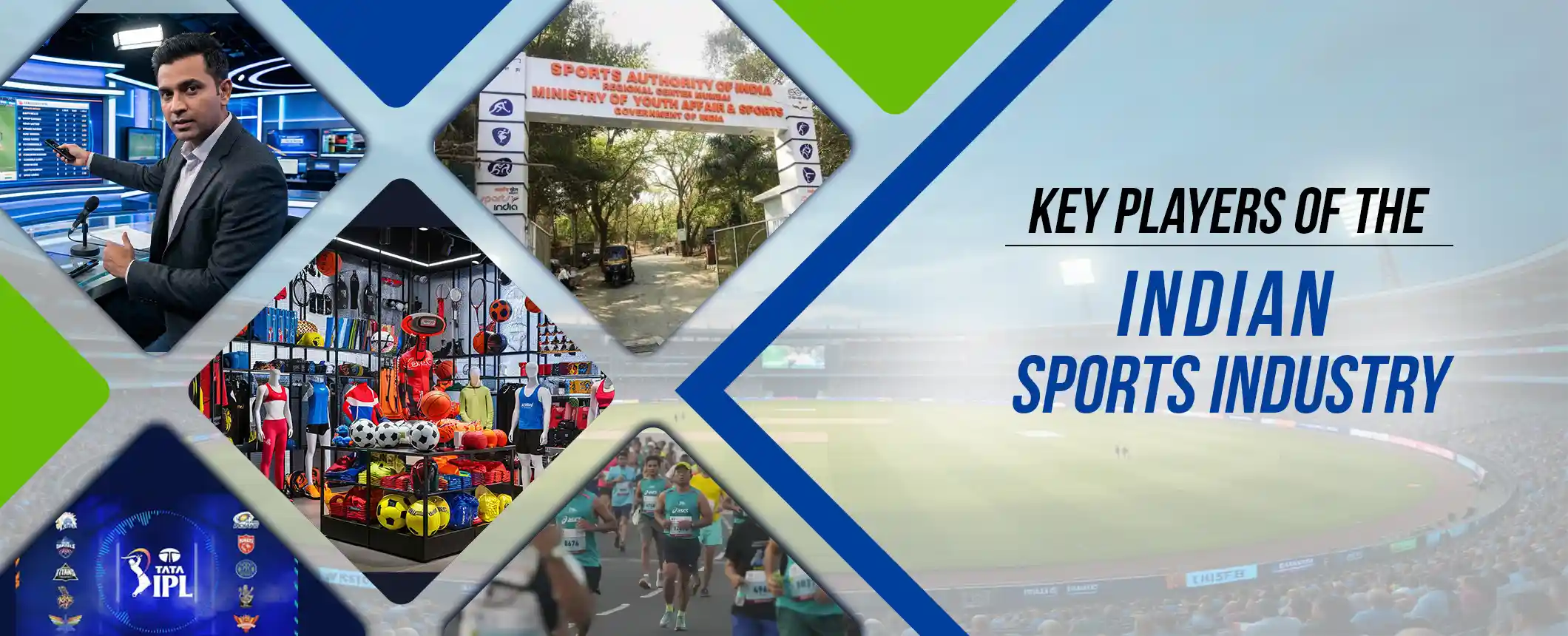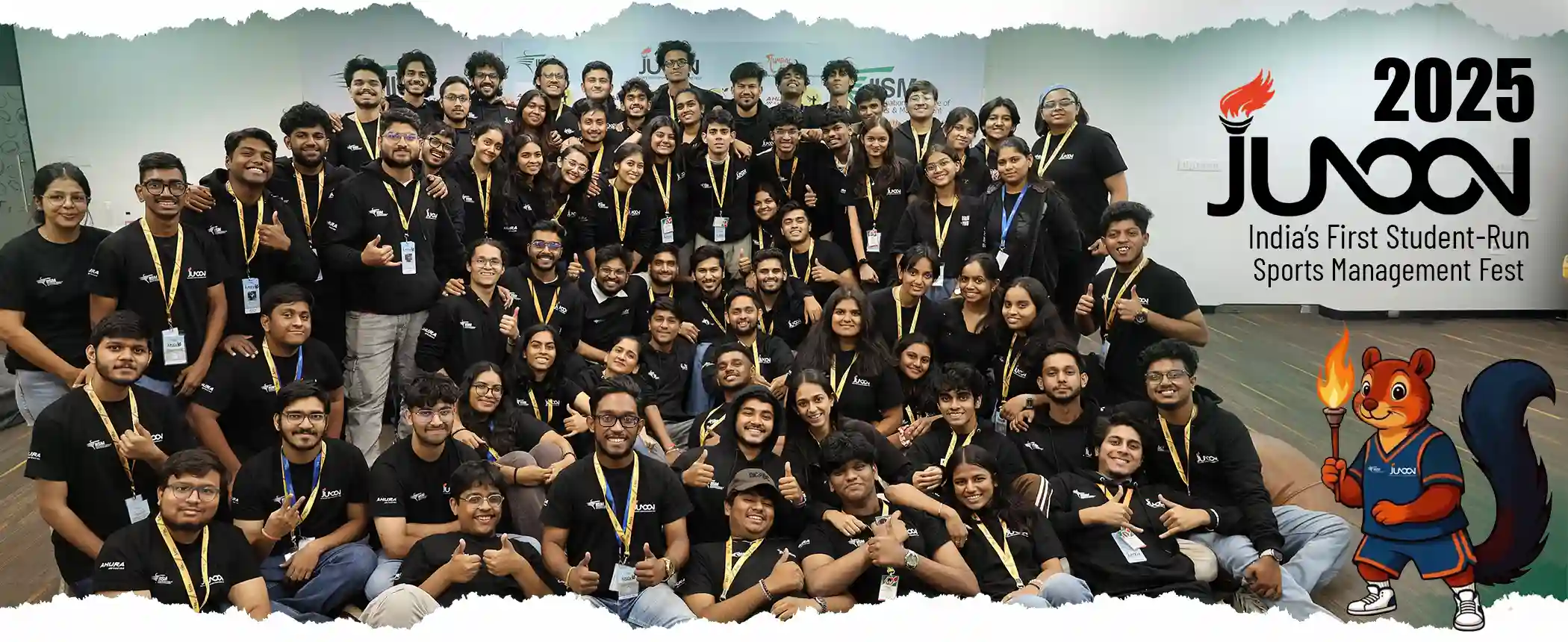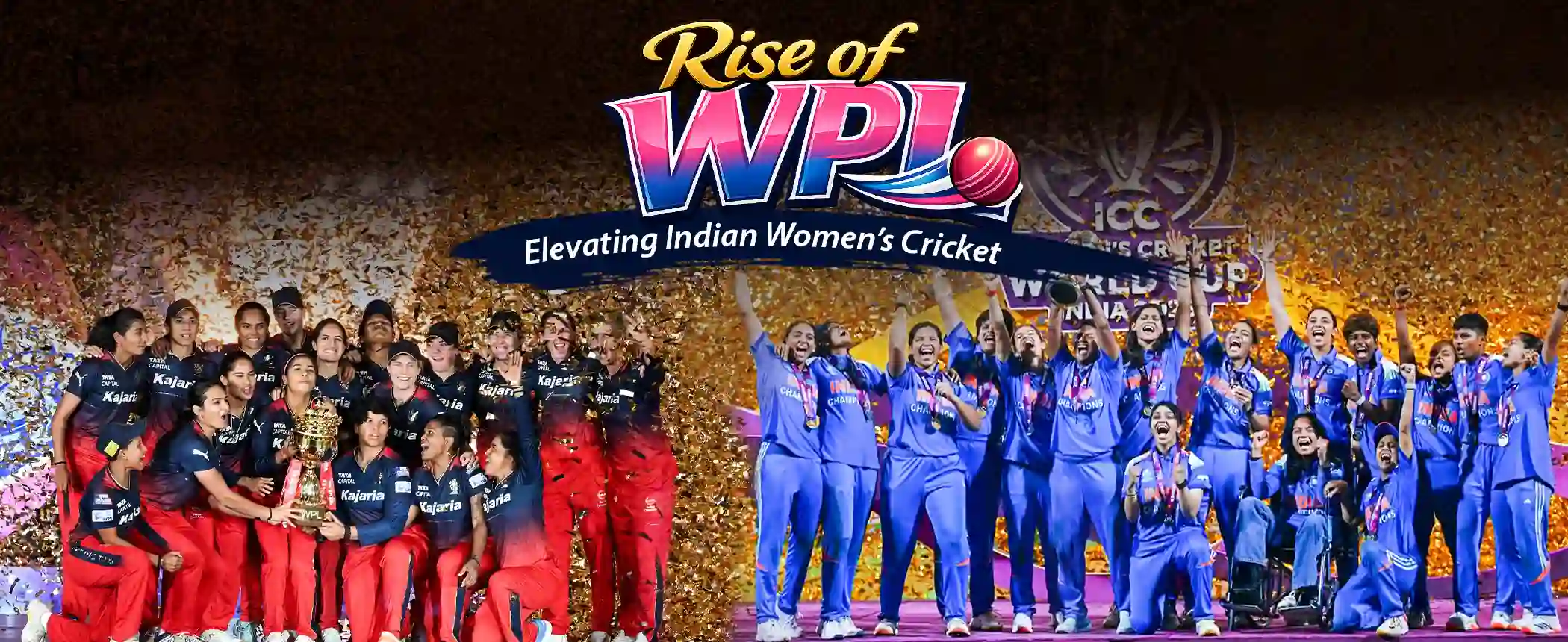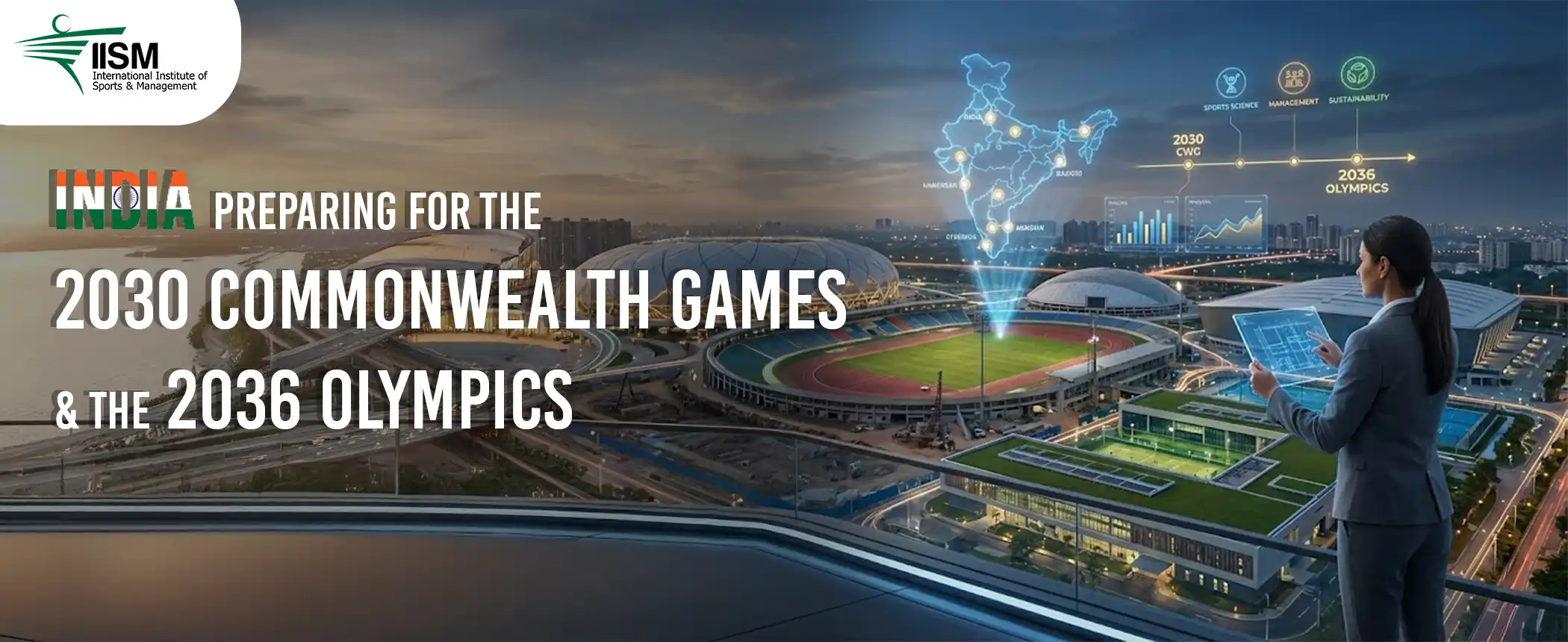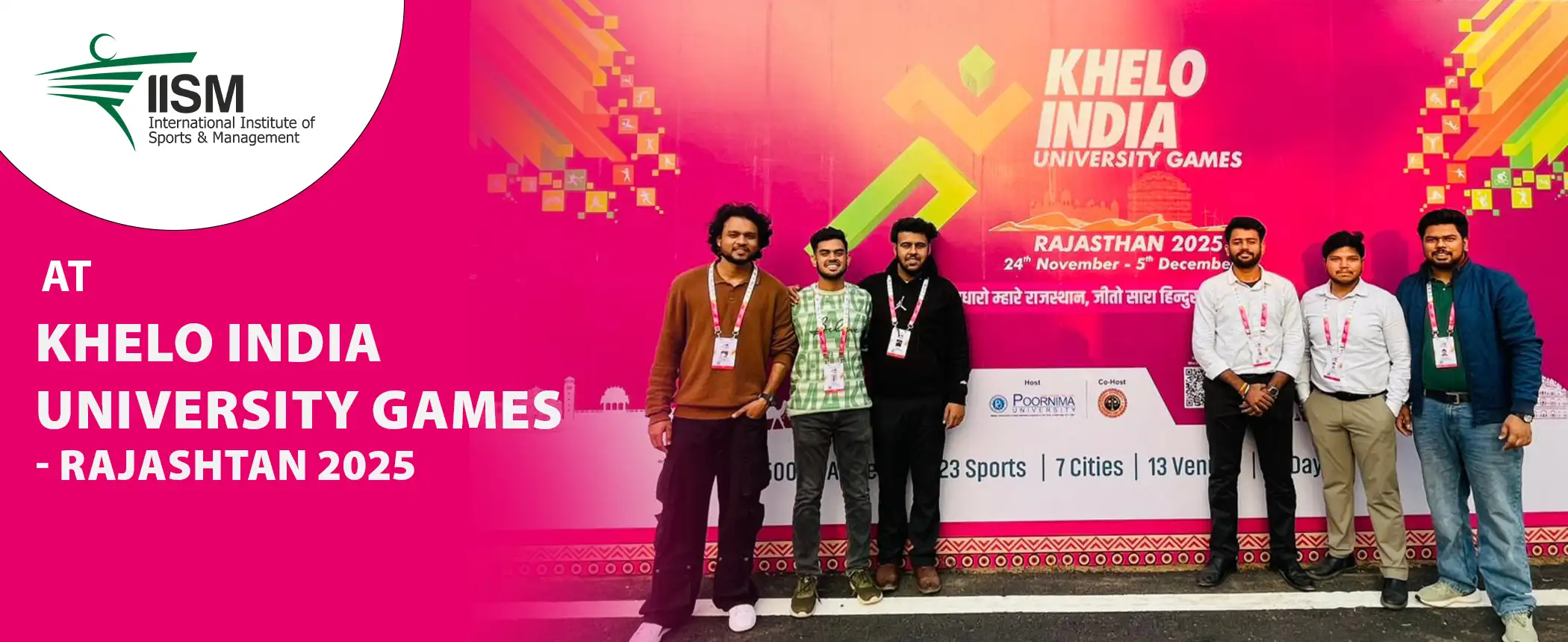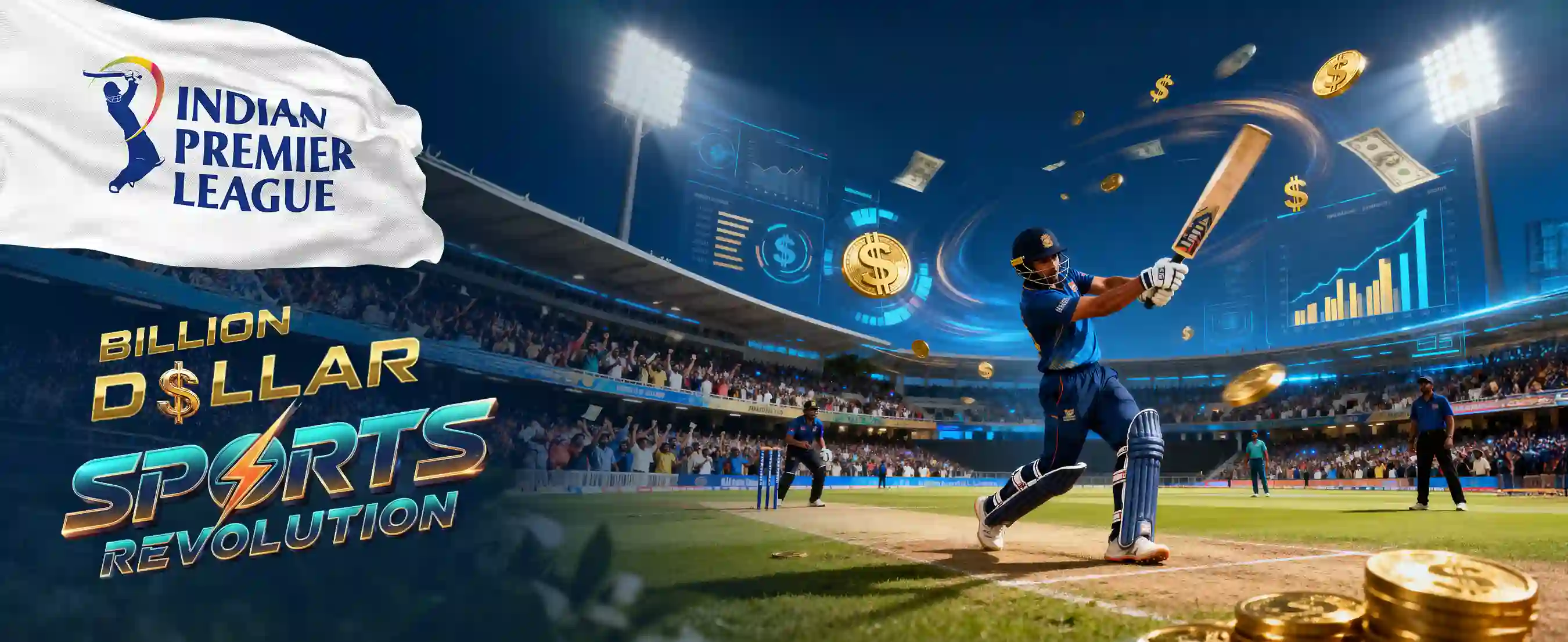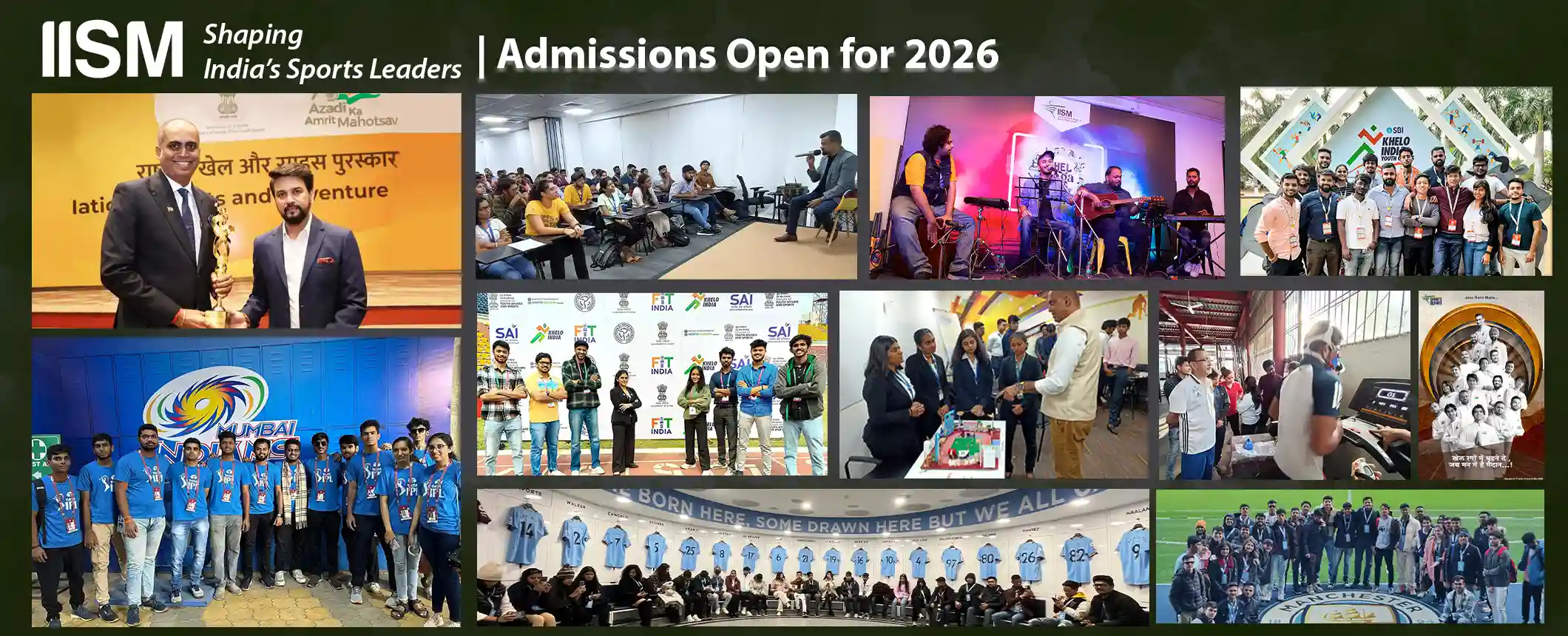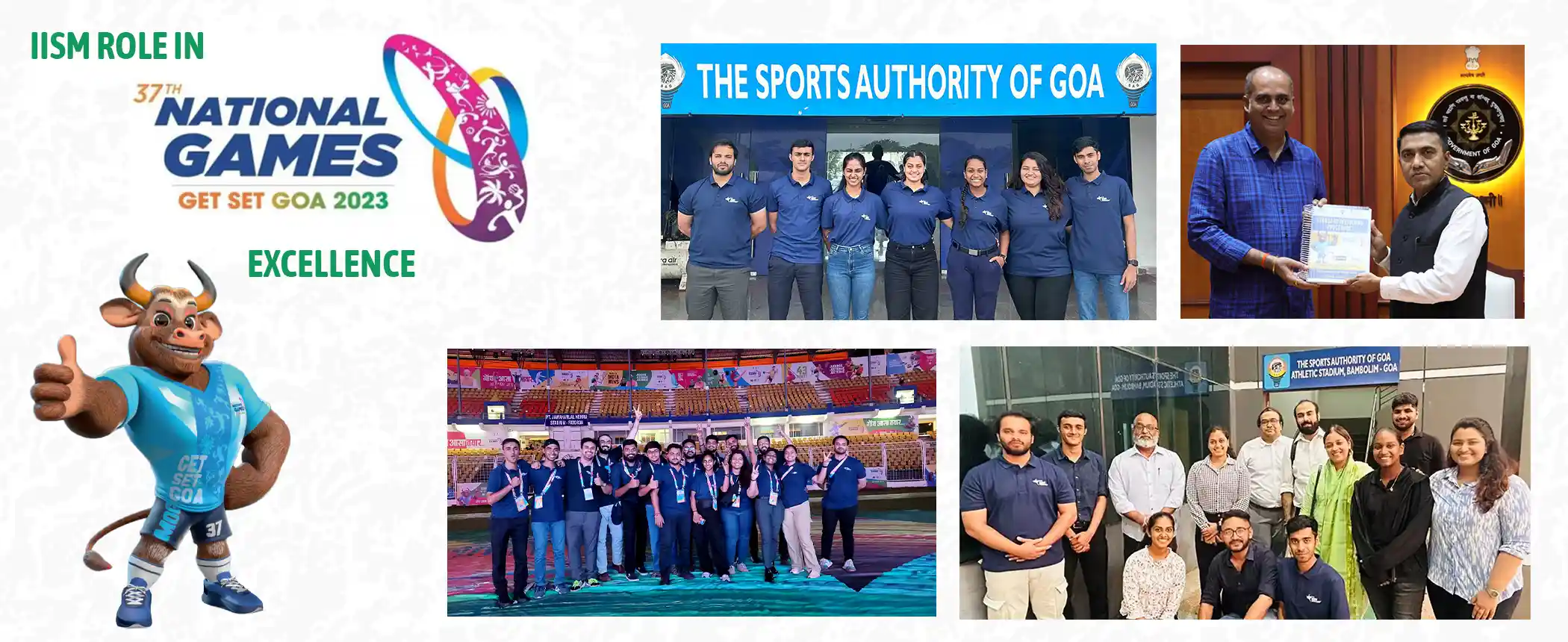Sports Careers in India: Growth & Job Opportunities

In 5 more years, India’s fastest-growing sports industry will make it one to watch. According to a recent report from Google & Deloitte, India’s sports market is expected to reach $130B by 2030. Not just that, with a CAGR of 14%, the growth of the sports sector is likely to outpace the established sectors, like automotive & tourism.
At this point, you must be raising your eyebrows and thinking what made the sudden rise of India’s Sports market?
Looking back to the previous 15 years, the sports market started to pick up with the mainstream popularity of the Indian Premier League (IPL). And the future outlook is highly promising. Because of the glamorous success of IPL, multiple leagues & tournaments are happening, not just in the field of cricket, but also in other sports arenas. Hence, fandom grows in numbers, and grassroots are turning into elite sports.
Besides, the sports budget for the financial year 2025-26 has seen a significant increase. The budget allocation is now INR. 3,794.30 crore, making a 10.23% hike over the previous year’s INR. 3,442.32 crore. Hence, you’ll see more upcoming sports leagues & tournaments initiated by Govt. which will multiply the job opportunities.
With expansion driven by government-backed sports infrastructure programs such as Khelo India and emerging leagues (including pickleball tournaments), there will be surging demand not only for athletes but also for sports professionals such as sports managers, sports science professionals, data analysts, coaches, event managers and so on. Alongside traditional roles, digital domains, like e‑sports, fantasy sports, and sports tech are opening many opportunities in the sports ecosystem,
A big shift is happening toward the sports renaissance.
And here comes the best part which this blog is all about.
This expansion demands a huge manpower- skilled, trained, passionate, and knowledgeable ones. So, as per the report by Google & Deloitte, the industry requires 10.5 million jobs across various sectors.
But, before we deep dive into the emerging job roles in the sports industry, let’s take a look at the subsectors of the sports industry.
There are six core subsectors and 4 allied subsectors of the sports industry, expected to contribute equally to the sporting economy by 2030.
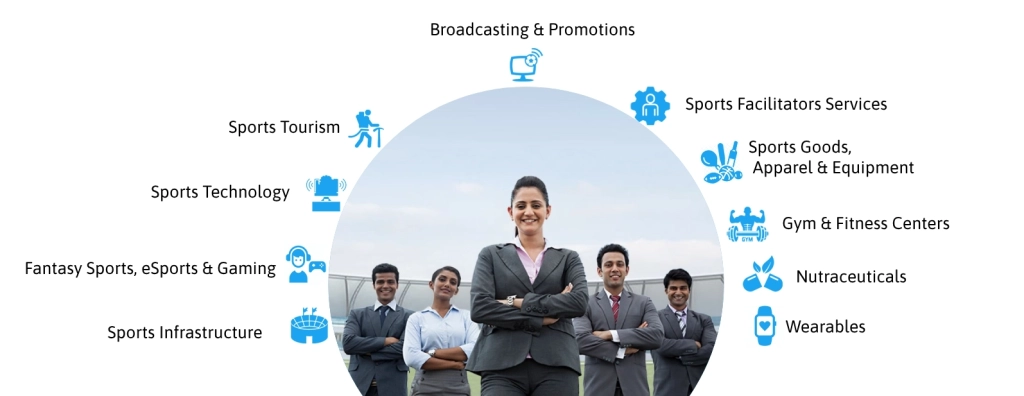
Core Sub-sectors:
- Broadcasting & Promotions: Broadcasting, Streaming, and Licensing of Sports content.
- Sports Goods, Apparel & Equipment – Manufacturing and Retail of Gear and Merchandise.
- Sports Infrastructure – Development and Maintenance of Stadiums, Training Centers, etc.
- Sports Technology– AI & Analytics, AR/VR, Fan Engagement Platforms, etc.
- Fantasy Sports, eSports & Gaming – Digital Platforms Offering Interactive Sports Experiences.
- Sports Facilitators Services: Event Management, Logistics, Sports Marketing, Sponsorships etc.
Allied Sub-sectors:
These support and amplify the core ecosystem:
- Sports Tourism– Travel related to attending or participating in sporting events.
- Gym & Fitness centres– Commercial Gyms, Functional gyms, CrossFit boxes, Martial Arts Gyms etc.
- Nutraceuticals– Health and recovery services tailored to athletes.
- Wearables– Smart Watches, Fitness Bands, Hydration Monitor, GPS trackers, etc.
Now, let’s talk about a few emerging job roles in the sports industry that’ll pave a successful career path for you.
1. Sports Marketers:
Sports marketers serve as the vital bridge between athletes, teams, and fans, curating narratives that ignite passion. They design and plan campaigns, deal with sponsorship, media relations, and social media content, maximizing visibility and engagement among fans. Further, their role includes securing and managing partnerships that align brand values with sporting excellence, negotiating contracts, and curating strategies that resonate with sports.
Overall, sports marketing goes beyond driving ticket sales and merchandise revenue. Sports marketers nurture long-term relationships by leveraging media analytics and community outreach to understand, connect, and grow the fan base.
2. E-Sports Manager / Tournament Director
With India’s e-sports audience projected to reach 220 million by 2030, the demand for professionals who can organize, manage, and promote e-sports tournaments is on the rise. This role involves overseeing event logistics, team coordination, and audience engagement strategies.
An esports manager leads professional gaming teams or organizational operations within the esports industry. They handle recruitment, performance monitoring, scheduling, and logistics for tournaments. Managers also secure sponsorships, build partnerships, and oversee content and fan engagement across streaming platforms. By coordinating with coaches and analysts, they maintain competitive performance while managing team welfare. In India’s rapidly expanding esports market, these roles are becoming crucial for structured, sustainable team growth and monetization.
3. Sports Data Analyst
Sports organizations increasingly rely on data to enhance performance and fan engagement. They interpret complex data sets to provide insights into player performance, game strategies, and audience preferences. They gather performance and health metrics from wearables, video feeds, and sensors, uncovering trends, and optimizing training. Analysts also delve into off-field data, such as fan behavior, engagement, and revenue streams, to support marketing strategies and commercial growth. In India, demand is rising. Thousands of positions—ranging from entry-level to senior roles, are listed across sports tech firms, teams, and agencies. Their insights power decisions in real-time, linking analytics to athletic performance and business outcomes, essential for a data-driven sports ecosystem.
4. Sports Psychologist:
Recognizing the importance of mental well-being in athletic performance, sports psychologists work with athletes to improve focus, manage stress, and enhance overall mental health. Their role is crucial in helping athletes achieve peak performance levels.
Sports psychologists are vital in nurturing athletes’ mental resilience and performance. They use evidence-based tools—such as visualization, goal-setting, stress management, and concentration drills—to help athletes overcome anxiety, maintain focus, and thrive under pressure. In India, growing awareness has led to dedicated roles. As India’s sports ecosystem strengthens, mental skills training is becoming as essential as physical conditioning, making sports psychology a growing career path.
5. Sports Content Creator:
GEN Z is changing the game, with 43% of the total audience -Genz’s unique behaviors are forcing sports organizations and brands to rethink their engagement strategies.
With consuming sports content online and viewing habits, there’s a growing need for creative professionals who can produce engaging digital content. This includes video highlights, athlete interviews, and behind-the-scenes footage for platforms like YouTube and Instagram.
Sports content creators design engaging visuals, videos, and written pieces that showcase the excitement of games and the stories behind athletes. They research, script, film, and edit original content, such as game highlights, player interviews, and behind-the-scenes footage—to boost fan engagement across digital platforms. Using analytics, they optimize content for reach and impact, collaborating with marketing teams to align messaging with brand campaigns. In India’s growing digital sports space, creators are key to storytelling, fan retention, and driving revenue through sponsorships and ad partnerships.
6. Athlete Manager:
Days are gone when the responsibility of Athlete managers only sticks to athlete’s travel arrangements.
Managing an athlete today means managing a brand, crafting strategy, and amplifying a legacy.
They manage from contract negotiations and sponsorship deals to public relations and brand building. They coordinate schedules, secure endorsements, and act as liaisons between athletes and stakeholders (teams, agents, brands). By aligning opportunities with the athlete’s goals and values, they ensure both financial growth and reputation management. In India’s sports ecosystem, emerging athletes increasingly rely on managers to navigate the complex world of leagues, media, and commercial partnerships.
7. Sports Broadcaster:
Storyteller of any match -A sports broadcaster brings live games to life through play‑by‑play commentary, analysis, interviews, and pre/post‑match shows. They interpret rules, strategies, and player backstories to inform and entertain audiences. Broadcasters work on-air from stadiums and studios, collaborating with production teams for seamless coverage. Their deep game knowledge, clear communication, and spontaneity make them essential in connecting fans to the emotional core of the sport. With multiple leagues of multiple sports happening across India, the demand for skilled broadcasters has surged. Hence, the broadcasting market is expected to grow by doubling its size, creating more opportunities for competent sports professionals.
8. Performance Coach
Performance coaches focus on maximizing an athlete’s physical capabilities and consistency. They design training programs, monitor fitness levels, manage workloads, and use video analysis to refine techniques. Working closely with sports scientists, physiotherapists, and dietitians, they maintain peak athlete performance while preventing injuries. With India’s investment in professional leagues and grassroots development, performance coaches are in high demand across sports infrastructure, academies, and elite teams.
9. Fan Engagement & Experience Manager
Enhancing the fan experience is a priority for sports organizations. Professionals in this role design and implement strategies to engage fans through personalized content, interactive platforms, and immersive in-stadium experiences.
Fan engagement managers shape every touchpoint of the game-day experience—before, during, and after events. They strategize around ticketing, interactive activities, and digital platforms to build fan loyalty. Coordinating marketing, production, and venue operations, ensures fans feel heard, involved, and energized. By analyzing feedback, social data, and attendance trends, they tailor initiatives—from photo ops and contests to app notifications and post-game highlights—to deepen emotional connections with the brand. In the evolving Indian sports scene, they play a key role in converting spectators into fanatics, driving ticket sales, merchandise, and viral fan moments.
10. AI & Sports Technology Specialist:
The integration of AI in sports is revolutionizing areas like performance analysis, injury prevention, and fan interaction. Specialists in this field develop and manage AI-driven tools and platforms that provide competitive advantages to teams and enhance the spectator experience.
AI and sports tech specialists bridge cutting-edge technology with athletic performance and fan engagement. Working within teams and with vendors, they implement smart wearables, video analysis, and AI-enhanced broadcasting tools—like instant replay clarity and personalized viewing experiences. In India’s fast-growing sports-tech ecosystem, the role of AI specialists is pivotal, be it in improving performance, reducing errors, and revolutionizing fan interaction in both stadiums and digital platforms.
With multiple leagues emerging, fan engagement is growing, technology is being integrated, and government investments are attracting marketers to the sports industry. As a result, career opportunities are expanding. Whether you’re an athlete or not, you can build a successful career in the sports industry. Passion alone is not enough to achieve success. You need professional skills, knowledge, training, and a solid network. Pursuing a sports education program at a prestigious institute will enhance your journey, helping you stand out in the industry.

